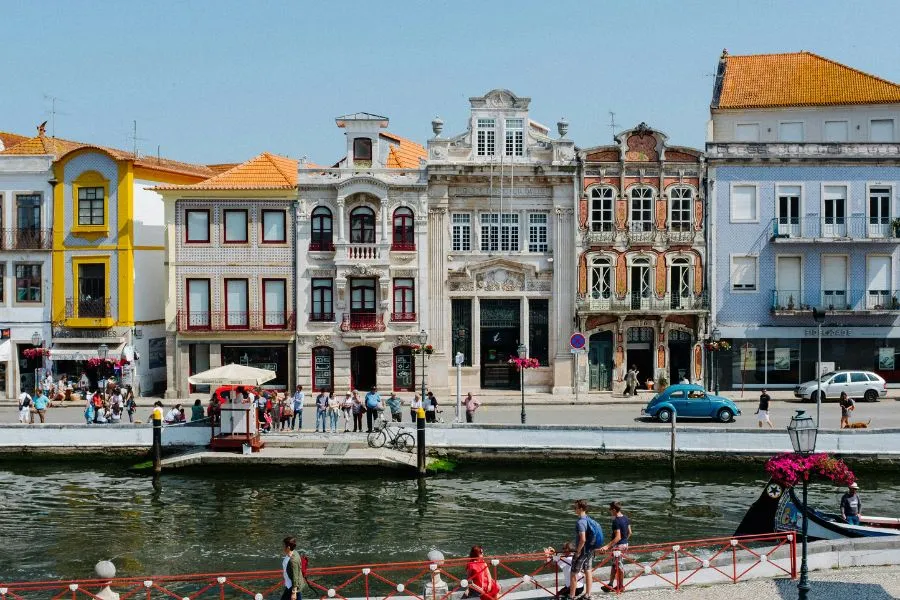Portugal has become one of Europe’s most attractive destinations for people seeking a new life abroad. With over 300 days of sunshine in some regions, a slower pace of life, and a culture that values family and community, it is no surprise that thousands of expats are choosing Portugal each year. Beyond its charm and lifestyle, the country also offers a well-defined immigration pathway that leads to permanent residency and even citizenship. Whether you plan to retire under the D7 Visa, work for a Portuguese employer, or invest in the local economy, a clear system is in place to help you transition from temporary residence to permanent stability.
Key Takeaways
What Does Permanent Residency in Portugal Mean?
Permanent residency in Portugal grants you the legal right to live in the country indefinitely. Unlike temporary permits that need frequent renewals, a permanent residence card provides long-term security and allows you to access almost all the rights Portuguese citizens enjoy. This includes full access to healthcare, education, and the labour market. Permanent residency also allows visa-free travel across the Schengen Zone, which is a major benefit for those who want to explore Europe freely.
The key difference between temporary and permanent residence lies in stability. Temporary residence permits are typically issued for one or two years and must be renewed multiple times. Permanent residency, on the other hand, is granted after five years of lawful residence and requires renewal only every ten years.
Eligibility Requirements
To qualify for Portugal PR, you must have lived legally in the country for at least five continuous years. During this time, you should hold a valid residence permit and avoid extended absences from Portugal, as long breaks can affect your eligibility. Applicants are also required to show proof of sufficient financial resources, a clean criminal record, and evidence of accommodation.
Also Read: How to Get Permanent Residency in New Zealand in 2025
Language is another requirement. Applicants need to demonstrate basic Portuguese skills at the A2 level, which proves integration into society. This may sound daunting, but many expats manage to achieve this with regular classes and daily practice.
Main Pathways to Portugal PR
The D7 Visa Route: The D7 Visa, often referred to as the passive income or retirement visa, is one of the most popular options. It is designed for individuals who can demonstrate steady income from sources like pensions, rental income, or dividends. Applicants must show that their monthly income is at least equal to Portugal’s minimum wage, which is reviewed annually. Family members can be included in this application, making it a great option for couples and retirees.
Employment Route: Those working in Portugal under an employment contract can progress to permanent residency after five years. This pathway is straightforward but requires continuous legal residence and proof of tax and social security contributions.
Study to Work Transition: Students who complete their higher education in Portugal can change their status to a work permit, and after five years of residence, they too become eligible for PR. This is a popular path for young professionals aiming to build their careers in Europe.

Investment Options: While the Golden Visa program has undergone reforms, certain investment pathways are still available. Real estate is more restricted now, but investments in funds or job creation may still count toward residence and eventually PR.
Application Process
Applications for permanent residency are submitted through the Serviço de Estrangeiros e Fronteiras (SEF). Once you complete five years of legal residence, you can schedule an appointment and provide the required documents. These include your valid residence card, proof of financial means, tax compliance records, a criminal clearance certificate, and proof of accommodation. You must also provide a certificate confirming your Portuguese language ability.
Processing times vary depending on the workload at SEF, but applicants should expect the process to take several months. The application fee is usually modest, generally under 300 euros, although additional expenses such as translation of documents and language testing should be considered.
Taxes and Cost of Living Considerations
One of the attractive aspects of moving to Portugal is its cost of living, which remains lower than in many Western European countries. Housing, groceries, and transportation are affordable in most cities outside Lisbon. Many expats also take advantage of the Non-Habitual Resident tax regime, which can offer reduced taxation for certain categories of income during the first ten years of residence. Understanding tax obligations early is essential, since SEF carefully checks compliance before granting permanent residency.
Also Read: How to Get Permanent Residency in Switzerland in 2025
Rights and Benefits After PR
Once you obtain permanent residency in Portugal, you gain the right to live, work, or establish a business without restrictions. You can access the public healthcare system, enrol your children in local schools or universities, and enjoy social security benefits. Travel becomes more convenient, as permanent residents have the right to move freely across Schengen countries. Most importantly, after maintaining PR for a period, you can apply for Portuguese citizenship, which provides one of the strongest passports in the world.
Common Mistakes to Avoid
Many applicants underestimate the importance of maintaining a consistent residence in Portugal. Extended stays abroad, especially more than six consecutive months in a year, can disrupt your eligibility. Another frequent mistake is neglecting language preparation, which is a key part of the application. Finally, tax compliance is non-negotiable, and ignoring obligations to the Portuguese tax authority is a sure way to face rejection.
Conclusion
Portugal’s immigration system is designed to reward commitment and integration. From the D7 Visa for retirees and those with passive income to work and study-based permits, the path to permanent residency is accessible for a wide range of applicants. By planning, staying compliant, and preparing for the language requirement, expats can secure long-term stability and eventually citizenship. With permanent residency, Portugal is no longer just a temporary home but a gateway to the entire European Union, combining lifestyle benefits with legal security.
Reference: https://immigrate-portugal.com/residency-in-portugal/





